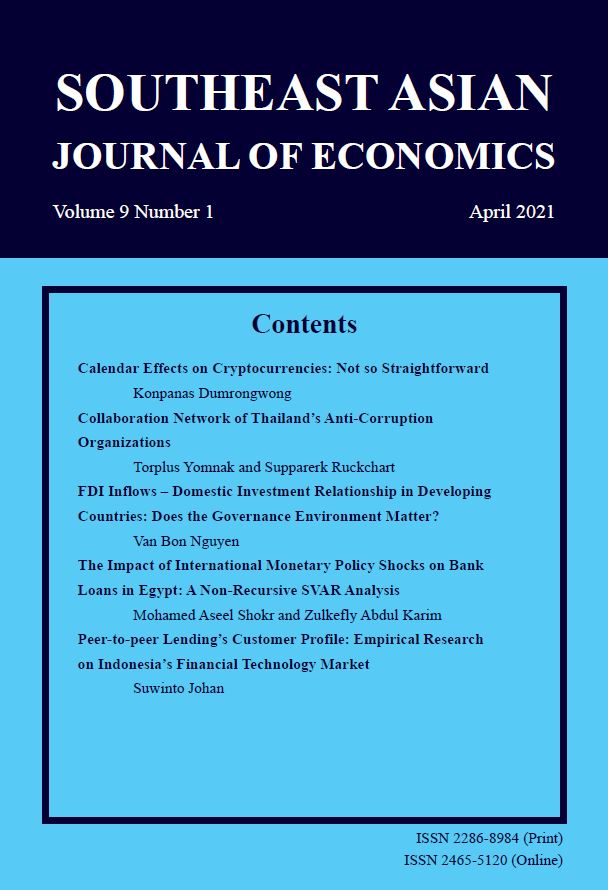Calendar Effects on Cryptocurrencies: Not so Straightforward
Abstract
This research investigates the existence of calendar anomalies on cryptocurrency markets with respect to calendar anomalies during 2010–2020. To account for potential clustering and non-normality in cryptocurrency returns, generalized autoregressive conditional heteroscedasticity (GARCH) regression with dummy variables is utilized. Two exploitable trading strategies are identified. First, it was found that Ethereum investors can generate abnormal returns in January. Second, abnormal profits can be generated from short-selling Litecoin on Mondays. Neither calendar anomaly is unique to the global COVID-19 pandemic. These results are robust after the considerations
of volatility clustering, non-normality, and changes in methodologies to detect the anomalies, and are consistent with the literature in stock markets.
Downloads
Published
How to Cite
Issue
Section
License
The submission of a manuscript implies that the paper is an original work and has not been published elsewhere. The author(s) authorize the journal to reproduce or distribute the paper in printed or other electronic forms.







